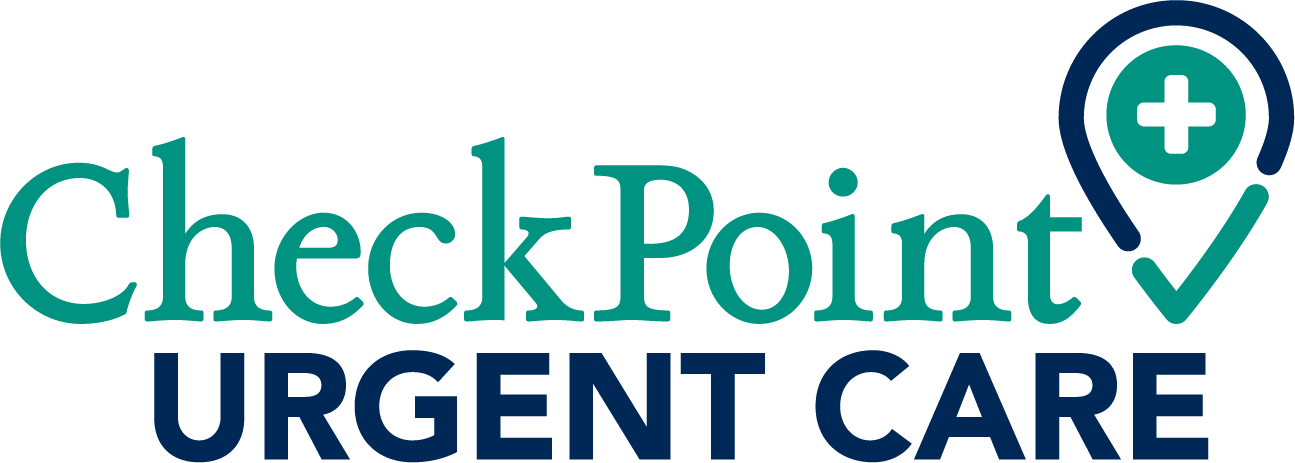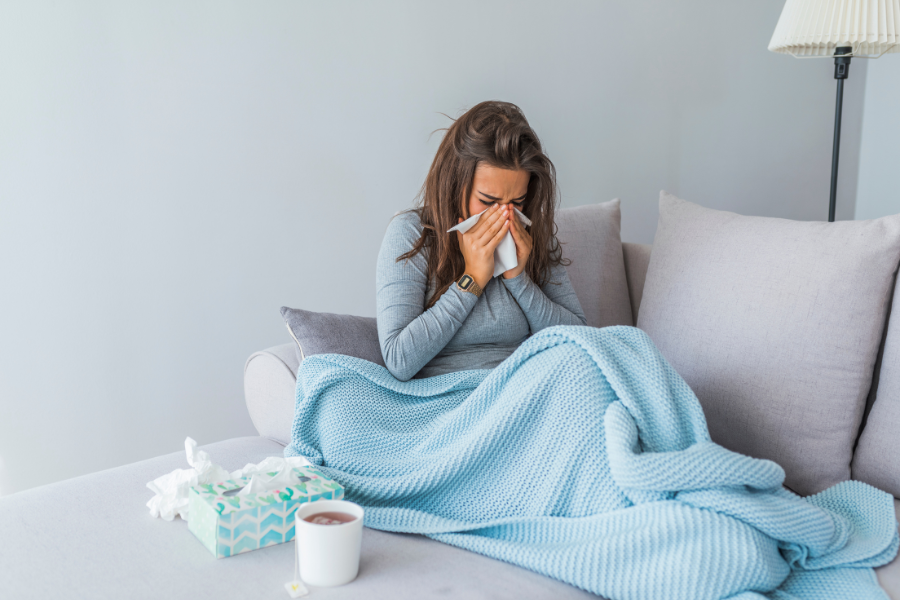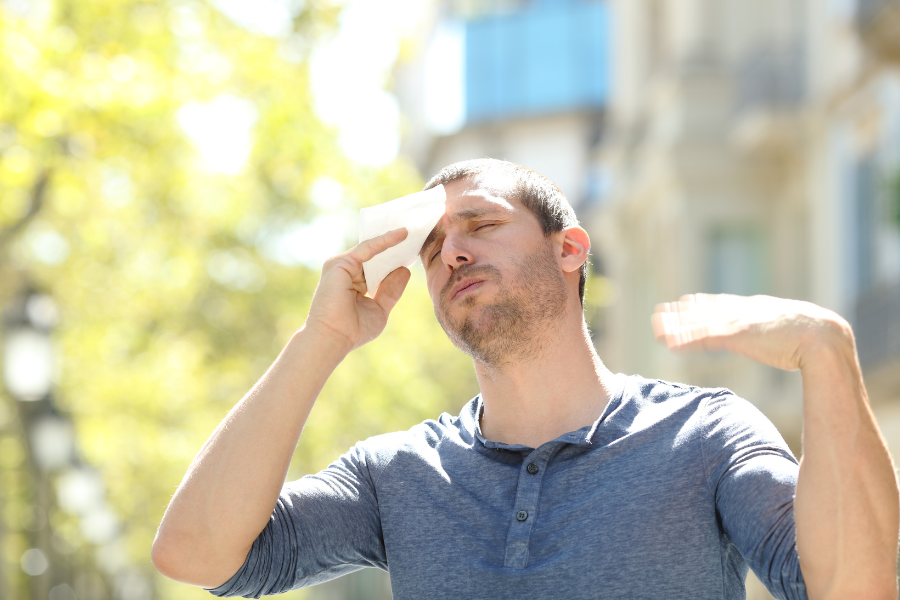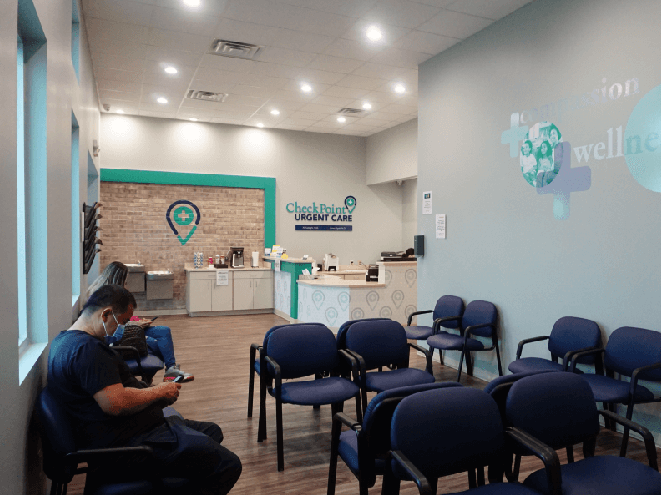Every year when temperatures start falling, seasonal allergies and germs can have you sneezing and coughing. But along with seasonal allergies, seasonal illnesses can have you feeling less than your best. Seasonal flu and the common cold are among the most observed illnesses in the fall and winter months. Learn about these two illnesses and the steps you can take to protect yourself and your family as cold and flu season approaches this fall. Check out some other issues and illnesses CheckPoint Urgent Care can help with.
Common Fall Illnesses
Fall weather comes with lower temperatures and drier air. What it also means is the annual resurgence of seasonal flu, the common cold, Covid-19, and RSV. These illnesses can come on quickly and leave you feeling sick for days after symptoms first begin. Luckily, there are plenty of resources out there that can help you stay healthy when viruses resurge this fall.
What To Look Out For
With cold and flu, there are signs that present themselves in patients with illnesses that can help pinpoint what may be ailing you. It helps to stay vigilant when your goal is to stay healthy. Be proactive by distancing yourself from those whom you may see with a runny nose or nasty cough as these are common symptoms of the cold and flu.
How To Stay Healthy
The best way to stay healthy is to take advantage of the healthcare resources available to you. This means getting your annual flu shot. The Flu shot can not only help with the transmission of the flu virus, but it can also protect you from getting the flu, which can help you be able to enjoy all your fall and winter plans without interruption!
If you’re a parent, ensuring that your child distances themselves from sick classmates and stays home if they are sick is important in mitigating the transmission of seasonal illnesses.
Wipe and disinfect your common household surfaces frequently. Most household cleaners specifically kill the flu virus, and these cleaning supplies can be a great way to keep you and your household safe this fall.
The most common way to protect yourself that most people are surely familiar with is washing your hands frequently. This can keep you feeling your best this cold and flu season.
The Most Common Illnesses: Flu And Common Cold
The common cold and the seasonal flu are the two most common illnesses that typically plague patients during the cooler fall months. These illnesses can appear out of nowhere and can really take a toll on your health. Learn about common symptoms as we go into the fall months and how to get treatment if you do unfortunately contract a seasonal sickness.
Symptoms
The symptoms of cold and flu are very similar. Patients typically complain of a cough, headache, fatigue, congestion, sore throat, watery eyes, and sneezing. With the flu, however, patients may also feel a more heightened level of fatigue and may experience body aches with a higher fever than the common cold may cause.
Symptoms of both illnesses can last for a week or more, so if your symptoms are severe, treatment may be necessary to get you feeling better and back on your feet.
Treatments
Treatment for the flu and common cold can be somewhat similar. Hydration is key for both illnesses. Keeping fluids in your body will help you fight off these illnesses faster and help alleviate some symptoms sooner.
Medication is also available when necessary if symptoms are severe enough. Nasal decongestants, nonsteroidal anti-inflammatory drugs, and antiviral medications can help alleviate flu symptoms. Some of these medications will require a prescription, so it is important to visit CheckPoint when you start feeling sick to make sure you can get the relief you need.
Common cold treatment often requires over-the-counter treatments such as antihistamines and decongestants. NyQuil and DayQuil are great products that can alleviate cold symptoms rapidly. Just be sure to stay hydrated when taking any medications.
Side Effects
Like with all medicines, side effects may occur. These can include but are not limited to headaches, dizziness, and fatigue. It is important to go over potential side effects with your healthcare provider whether you are taking prescription or over-the-counter medications.
When To Contact Checkpoint
If you have symptoms like the ones listed above for more than a few days, you should reach out to your trusted healthcare professional at CheckPoint. Here, you can expect a warm welcome, a seamless check-in experience, and care from some of the top healthcare professionals in the area.
Checkpoint cares
When cold and flu season rolls around, many people find themselves struggling to shake off these yearly illnesses. Don’t let the cooler weather season mean that you’re feeling less than your best again. Contact CheckPoint for all of your primary care needs and make sure you stay feeling your best this cold and flu season.








